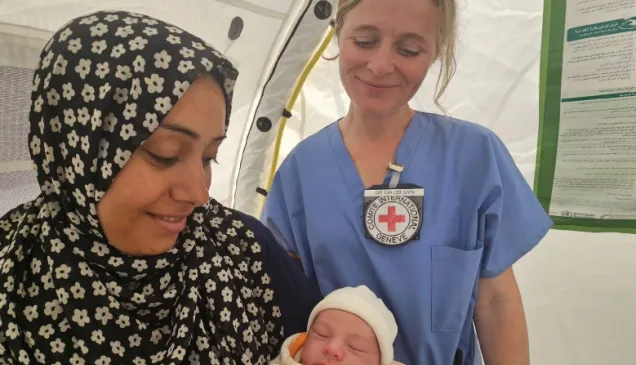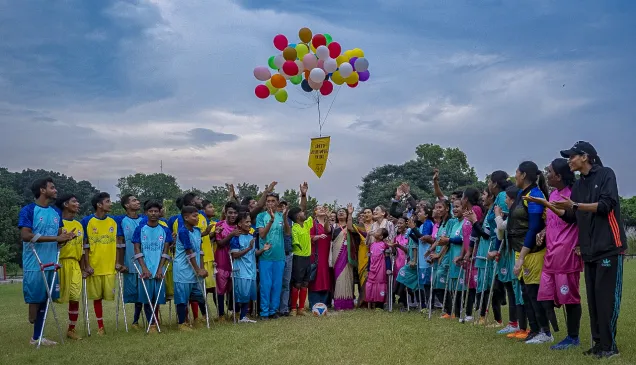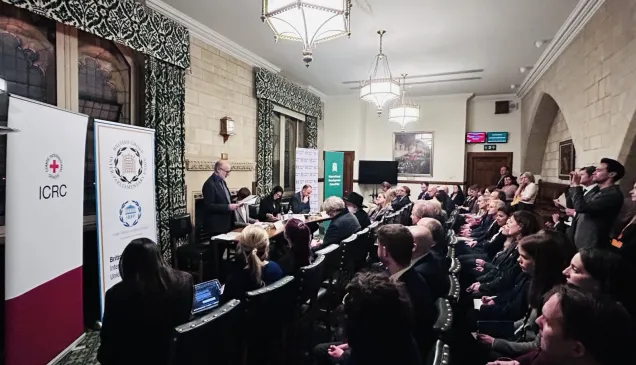Special Appeal 2025 – Emergency Lifeline
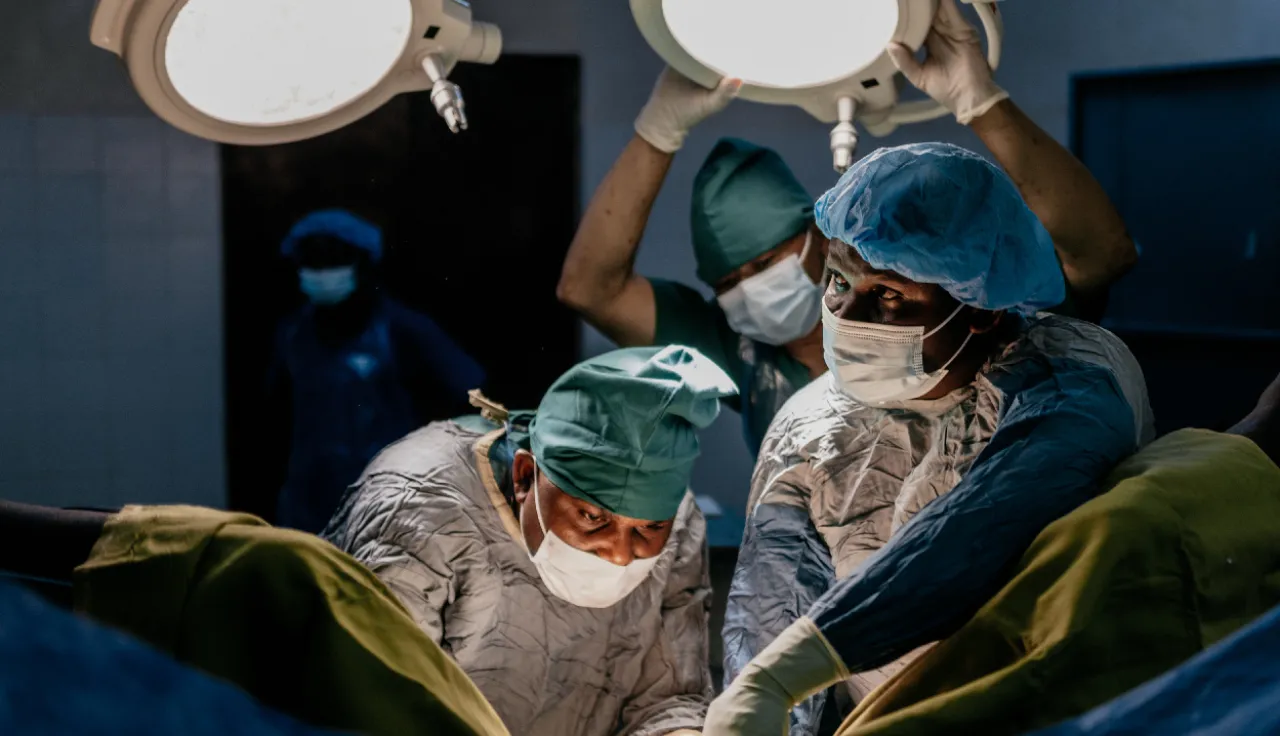
Health services are among the earliest and most devastating casualties of war, with over 3,000 attacks recorded between 2023 and 2024—despite protection under international humanitarian law. As violence cripples hospitals, blocks ambulances, and threatens health workers, millions are left without vital care. In a world of rising fragility, safeguarding access to life-saving health services has never been more urgent.
What sets us apart: Our humanitarian mandate and operational expertise ensuring a lifesaving continuum of care
Due to our extensive operational experience and specific expertise in healthcare, we are uniquely positioned to address the urgent health needs of people in conflict. We operate in conflict zones around the world to respond to the needs of people who are most difficult to reach. We deliver a comprehensive response that ensures a continuum of care, from first-aid treatment to hospital care, with a sustainable impact. Through close cooperation with the National Red Cross and Red Crescent Societies, we tailor responses to local needs while promoting respect for international humanitarian law and protecting the medical mission. This approach not only ensures access to health care but also helps build resilience in communities, reduce risk, and safeguard the rights of people affected by armed conflict.
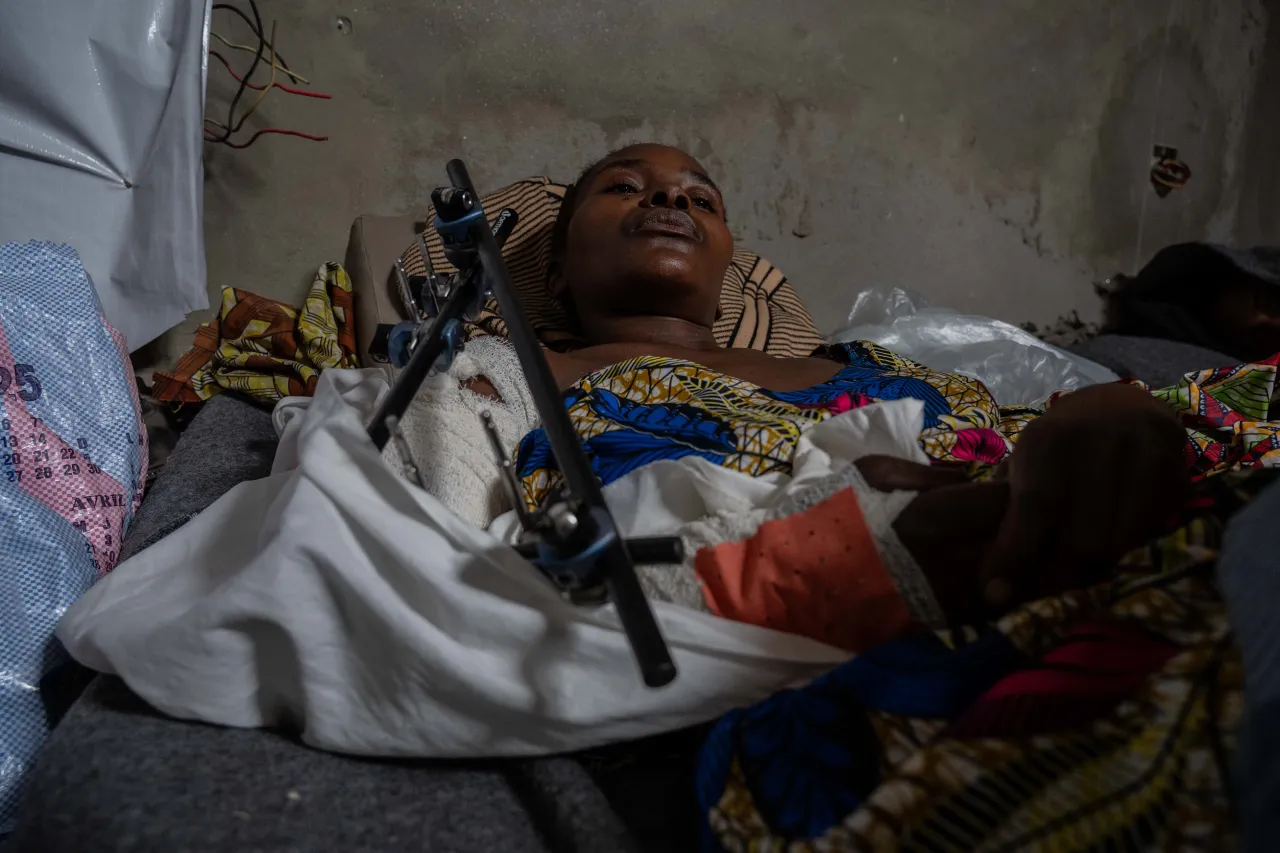
Democratic Republic of the Congo, 2025. After being severely wounded in an explosion, Riziki receives life-saving surgery at the ICRC-supported CBCA Hospital in Goma, beginning her long road to recovery.
How we do it: Bringing together diverse expertise to meet emergency health needs in conflict
Preventing and mitigating attacks on health care is a core priority for the ICRC. We work to promote compliance with international humanitarian law by engaging directly with states, armed groups, and local actors, strengthening legal frameworks, and providing targeted training to weapon bearers. Through support for lawmakers and practical guidance for health workers, we help enhance protection on the ground. Our Health Care in Danger initiative and public awareness campaigns further aim to reduce violence against health services, ensure safe access to care, and foster lasting respect for medical personnel and facilities in conflict zones.
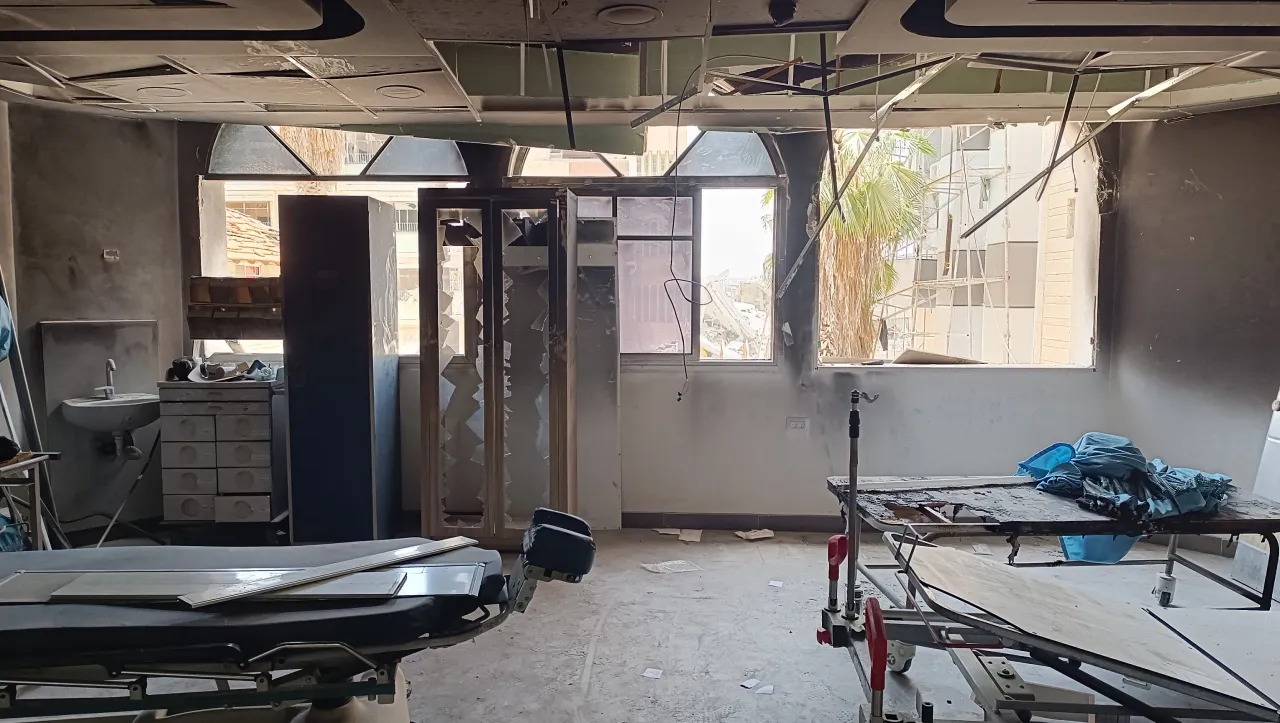
Photos showing damage caused to the endoscopy room in Al Amal Hospital, Khan Younis – May 2024 Gaza.
We respond to emergency health needs by delivering life-saving medical services that reinforce the full continuum of care. In conflict zones, where access to hospitals may be delayed or impossible, first aid is vital. Our first-aid programmes focus on building local capacity by training specific groups – including weapon bearers and community members – to provide emergency care sustainably, in close collaboration with National Societies. Mental health and psychosocial support are integrated from the start, helping first responders manage both victims’ and their own psychological needs. We stabilize the wounded, support ambulance services, and strengthen the chain of casualty care. At the hospital level, our decades of expertise in war surgery enable us to treat complex injuries, support overstretched facilities, and ensure the continuity of essential services like obstetrics and paediatrics. We deploy surgical teams, supply critical equipment, upgrade infrastructure, and train local staff, while embedding psychological support throughout hospitalization and rehabilitation. This comprehensive approach helps patients manage trauma, adhere to treatment and rebuild independence.
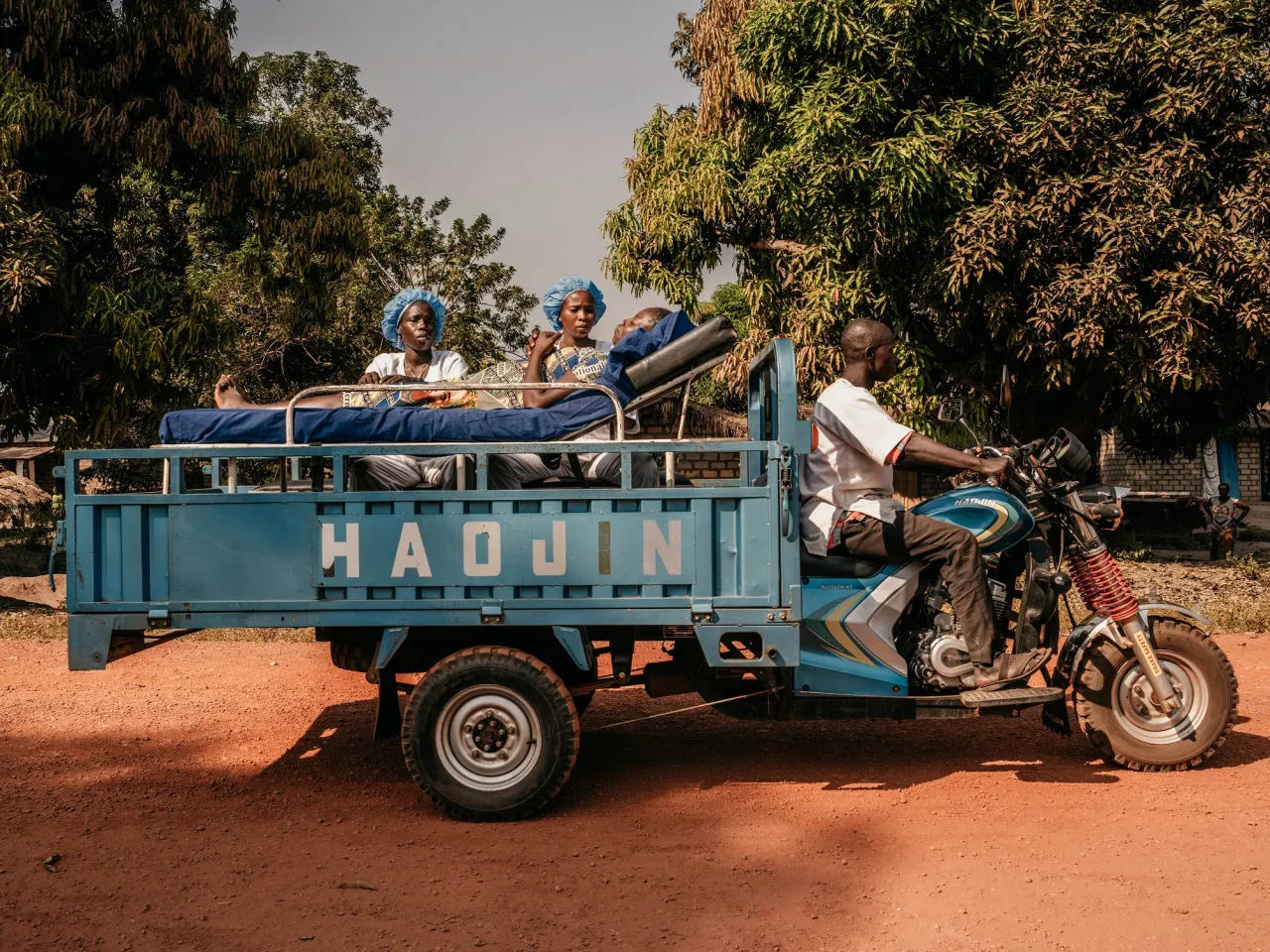
Nurses from the Doukouma health centre transport Bakote Kitiesa, a woman with pregnancy complications, on a motorcycle ambulance. This is often the only means of transport that can operate in remote areas and takes people to hospital for emergency care.
We influence policies and practices in key health areas by leveraging our legal, operational, and policy expertise to promote respect for international humanitarian law and the protection of health services worldwide. Through global advocacy, diplomacy, and the Health Care in Danger initiative, we work with states, multilateral bodies, and civil society to safeguard hospitals and ensure non-discriminatory care. Together with six states, we launched the Global Initiative on IHL which seeks to reinvigorate political commitment to the protection of medical services. We also advance best practices in weapon-wounded care by developing standards, sharing expertise, and fostering coordinated surgical responses in conflict zones.
In 2025, the ICRC aims to:
- Support 523 hospitals either regularly or with emergency assistance
- Train over 46,000 people in first aid and pre-hospital care
- Facilitate nearly 61,000 mental-health and psychosocial support sessions

